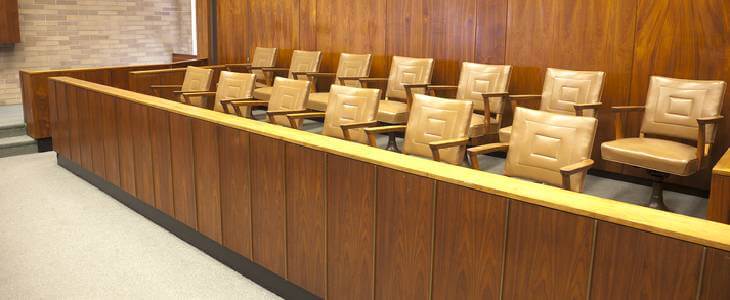A criminal trial does not always end with a guilty or a not guilty verdict. Sometimes, a mistrial is declared. A mistrial is a trial that has essentially be deemed invalid due to an error that occurred in the proceedings or because the jury was unable to reach a consensus regarding the verdict. If the jury was unable to get enough votes for a verdict, this is referred to as a “hung jury.”
What Happens If There Is a Mistrial Due to a Hung Jury?
In a criminal trial, after both the prosecution and the defense teams have presented their evidence, the jury retires to private chambers in order to weigh all of the evidence and render a verdict. If the criminal case is being tried in federal court, then the jury must reach a unanimous verdict (this is also true of civil cases tried in federal court). If the criminal case is being tried in state court, then it might be different. Almost every state, however, requires that the jury in a criminal trial reach a unanimous verdict. This means that, in most criminal cases, when a jury cannot reach a unanimous jury, it is referred to as a “hung jury,” meaning there were not enough votes in favor of one verdict.
In the event of a hung jury, the judge may instruct the jury to deliberate further to see if they can reach a unanimous decision if given more time. In other cases, the judge may allow another hearing to be held where the jury is allowed to present a list of questions for the parties involved to answer. Sometimes, a judge may go straight to declaring a mistrial. If more time or more information for the jury does not lead to a unanimous verdict, the judge may then declare a mistrial.
After a mistrial has been declared due to a hung jury, the prosecutor has the option of considering how to proceed. In some cases, the prosecutor may end up dismissing the charges levied against the defendant. In other cases, a plea bargain may be reached after a mistrial has been declared. If neither of these things occur, the mistrial will end up leading to the defendant tried on all of the same charges in another trial to be held at a later date. Double jeopardy does not apply in the event of a mistrial. This is because double jeopardy only applies when an individual has been convicted of a crime. Once convicted, the individual cannot be tried for the same crime. A mistrial, however, does not result in a conviction. Therefore, the individual can be tried once again at trial.
New York Criminal Defense Attorneys
The criminal justice process can seem endless. While a mistrial is better than a guilty verdict, it can also be very frustrating. It means more uncertainty and more waiting. The determined criminal defense attorneys at CDH Law are here to provide you with rigorous legal counsel no matter where you are in the criminal justice process. Contact us today.



